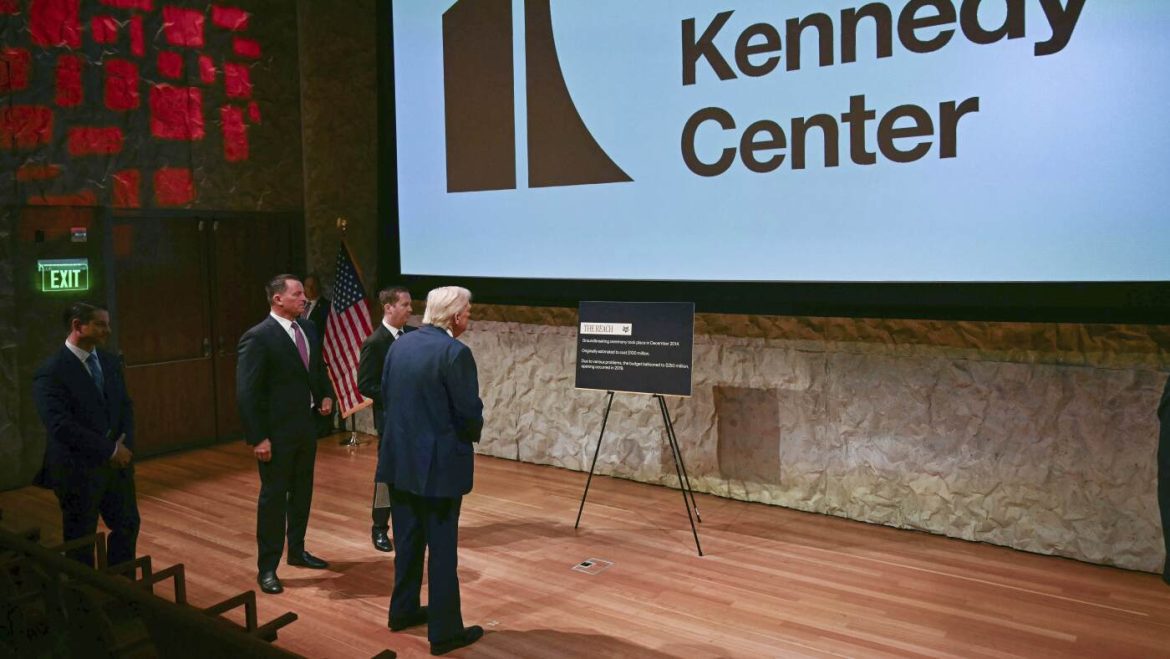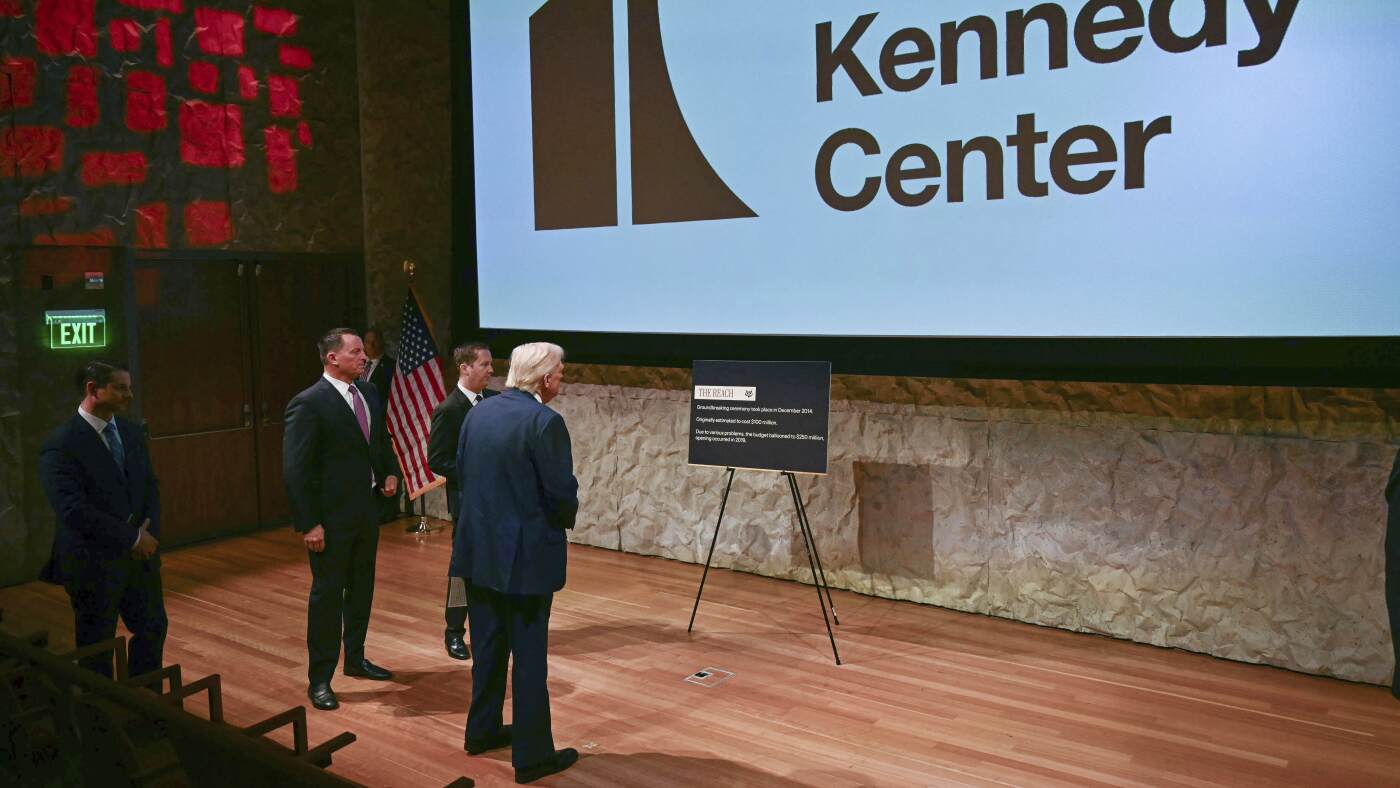The Intersection of Politics, Culture, and Protest: Trump’s Attendance at ‘Les Misérables’ at the Kennedy Center
Introduction: A Night of Performance and Protest
On a charged evening at Washington, D.C.’s John F. Kennedy Center for the Performing Arts, President Donald Trump attended the opening night of the critically acclaimed musical “Les Misérables,” marking his first visit to the venue since assuming office. This event became a focal point, intertwining theatrical spectacle with the era’s cultural and political tensions. Trump’s presence at the revamped Kennedy Center—where he had recently overhauled the board of trustees and appointed himself chairman—sparked a blend of cheers, boos, protests, and cultural discourse surrounding the politics of art and free expression.
Setting the Stage: Trump’s Influence on the Kennedy Center
Trump’s attendance was not merely a social or cultural appearance; it was a deliberate act linked to structural changes he initiated within the Kennedy Center. After assuming control over the institution’s leadership, his influence began reflecting deeply in the Center’s programming and governance. His controversial decisions stirred debates about the politicization of cultural institutions and raised concerns about the independence of the arts from presidential authority. Notably, his pledge to impose new programming standards prompted protests, particularly against potential bans on certain types of performances, including drag acts—a move provocative among the artistic and LGBTQ+ communities.
The Musical’s Significance: ‘Les Misérables’ as a Mirror to Protest
The choice of “Les Misérables” as the evening’s performance layered the event with historic and symbolic significance. The musical, set against the backdrop of revolution and protest in 19th-century France, depicts themes of social upheaval, resistance, and fight against oppression. This narrative created an ironic resonance with contemporary American political undercurrents during Trump’s presidency—an irony not lost on the theater community or the attendees. The play’s themes of revolution and protest contrasted sharply with the political climate and Trump’s own administration’s contentious policies, especially regarding immigration enforcement and civil liberties.
Audience Reaction and Cast Boycotts: A Cultural Flashpoint
Trump’s presence provoked mixed reactions from the audience and the theatrical community. Some greeted him with applause, while others vocalized their dissent through boos, reflecting the polarization surrounding his administration. The tension extended backstage as several cast members of “Les Misérables” planned to boycott the gala performance in protest of Trump’s influence over the Kennedy Center and his political stances. This act articulated a deeper resistance within the artistic community, emphasizing artist autonomy and a stance against perceived politicization of the arts.
Drag Performers and Demonstrations: Expressive Protest in Full Color
Visible protest powerfully manifested outside the Kennedy Center, where a contingent of drag performers attended the event adorned in vibrant colors—pink, yellow, purple, and blue—as a form of peaceful protest against the president’s policies and public statements regarding LGBTQ+ rights and cultural expression. Their presence embodied the spirit of resistance and highlighted the ongoing cultural battles over inclusivity and the freedom to express diverse identities. This protest brought not only visibility but also a poignant commentary on the opposition to governmental restrictions on artistic and personal freedoms.
Political Undertones of the Event: Beyond the Theater
The evening was further charged by the attendance of Vice President JD Vance and first lady Melania Trump, reinforcing the political significance of the event. The gathering took on the dual role of an arts performance and a political fundraiser, revealing the complex mingling of governance, celebrity, and the arts in contemporary America. Trump’s dismissal of cast boycotts and public criticism spotlighted his administration’s broader approach to dissent and opposition, reflecting ongoing national discussions about the boundaries of protest and political expression.
Concluding Reflections: Art as a Battleground for Power and Identity
The convergence of President Trump’s attendance at “Les Misérables,” the protests by performers and audience members, and the broader cultural backlash against his stewardship of the Kennedy Center marks a profound moment in the relationship between politics and art. It underscores how art institutions can become arenas where societal conflicts play out, serving as mirrors and catalysts for broader conversations about power, identity, and resistance.
This event illustrated the enduring power of performance to provoke thought and action, even amid contentious political climates. “Les Misérables,” with its timeless themes of struggle and revolution, was an apt backdrop to a night where the arts both reflected and challenged the contemporary socio-political order. Ultimately, the evening at the Kennedy Center revealed much about the role of culture in shaping and contesting public narratives, affirming that artistic spaces are, and always will be, vital forums for democracy and dissent.


